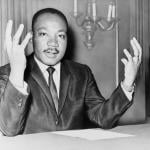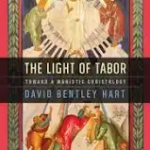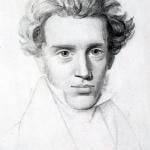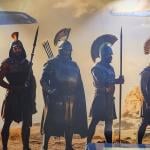
This is another installment of the current book discussion of Living Out of Control: Political and Personal Faith in Waning Christendom by Rodney Clapp. Here I will take up Chapter Four: Prefigurative Politics and Secularity. If you have read this chapter, feel free to comment. If not, feel free to ask a question.
The thesis of this chapter is that the Christian church should not attempt to control culture or society but only “prefigure the world as it will be tomorrow, at the eschaton.” (42) Rodney says “I take it that prefigurative politics are the central and primary politics of the church and Christians.” (45)
”Prefigurative” means foreshadowing, showing what the ideal would or will look like. The church’s task in the world is primarily (alongside winning souls to Christ) prefiguring the kingdom of God of the future.
Rodney argues that there is a difference between “secularism” and “secularity” with the former being bad and the latter being good and even having Christian roots. The former attempts to force privatization of religion on a society and its citizens while the latter simply allows all religions and belief systems to have equal voices in how society should organize itself.
“To live eschatologically, in the time between the times otherwise known as secularity, is to accept responsibility to live on an open and level playing field with all other people, who are also immersed in the saeculum.” (48)
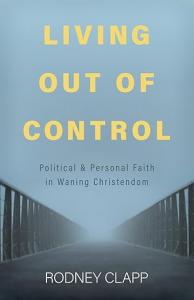 As an Anabaptist I could agree more with Rodney’s vision of the church and the world. We Anabaptists have never wanted Christians to coerce non-Christians to obey Christian rules or ways of living. We believe in persuasion, not coercion. The Anabaptists were perhaps the first Christians in a millennium to argue for and live by the separation of church and state. Many of them died for that.
As an Anabaptist I could agree more with Rodney’s vision of the church and the world. We Anabaptists have never wanted Christians to coerce non-Christians to obey Christian rules or ways of living. We believe in persuasion, not coercion. The Anabaptists were perhaps the first Christians in a millennium to argue for and live by the separation of church and state. Many of them died for that.
However, as I have said before, I am also an American citizen and I care about American society and culture. I agree with Rodney (and Rowan Williams who he quotes) that our primary way of influencing our society and culture should be persuasion “in the public square” where we have no special state-granted privileges.
On the other hand, and this is where I might disagree with Rodney, I am not so sure that the public square should be absolutely pluralistic with ALL voices given equal status, equal “hearing” by those with power to listen and adopt beliefs expressed into public policy.
Years ago Lutheran-turned-Catholic theologian Richard John Neuhaus published the book The Naked Public Square in which he argued that the “public square” is never really naked. And that, by abandoning it Christians are turning it over to voices clamoring for influence and even power. (In the title of the book “naked” meant devoid of any particular reigning worldview or system of beliefs.)
Neuhaus did not argued for theocracy, but he did believe that the “public square” cannot and will not stay “naked” forever. Sheer pluralism of ideas will inevitably lead to chaos and anarchy in which SOME ideology, belief system, will bring order, even if by force.
Another book, published around the same time, entitled The Myth of Neutrality, argued that there is really no such thing as absolute neutrality combined with influence and power. Everyone clamoring in the allegedly naked public square, the “secular space,” has some ideological agenda. There is, the author argued, no neutral space in the public square. Those who claim to be neutral have an agenda linked to power. Everyone wants his or her “voice” (worldview, ideology, religion) to be dominant in some way.
I attended an allegedly “neutral” major research university. Then it was annually ranked in the top ten of American national universities by US News and World Report. It was one of America’s first universities with no religious ties. It was secular from the start. And yet, during my three years in residence there, I experienced a strong emphasis, mostly on the part of the faculty, on secularism, naturalism, even materialism.
The same was true in my “encounters” in public schools. Powerful people wanted to drive religion out of the schools, even attempting to stop students from gathering voluntarily for Bible study and prayer during free time. Certainly teachers were practically forbidden from talking about their religious faith on school grounds. However, teachers could talk about their beliefs such as reincarnation and naturalism.
As Christians increasingly live out of control, there are others, even hostile to Christianity, who want to control the public square.
I am not suggesting that Christians should attempt to recover control of the public square. I am questioning whether the public square should be a space where EVERYONE has an equal voice and equal influence.
*Note: If you choose to comment, tell whether you have or have not read this chapter. If you have not, only ask a question. In any case, keep it relatively brief (no more than 100 words), on topic, addressed to me, civil and respectful (not hostile or argumentative), and devoid of pictures or links.*



